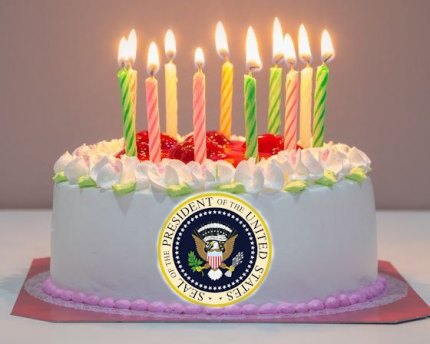Does a candidate's age matter?

'I hope there's an age limit," he said during a recent event at the Carter Center in Atlanta. “If I were just 80 years old, if I was 15 years younger, I don’t believe I could undertake the duties I experienced when I was president. ... You had to be very flexible with your mind. You have to be able to go from one subject to another and concentrate on each one adequately and then put them together in a comprehensive way.”
It was a timely remark, for several of the presidential candidates are well beyond retirement age. Sen. Bernie Sanders, D-Vt., who is vying to become president in 2020, would be 79 years old on Inauguration Day. Former Vice President Joe Biden would be 78. The current occupant of the White House, Donald Trump, a Republican, would be 74 if reelected. And another contender, Sen. Elizabeth Warren, D-Mass., would be 71.
In fairness, Sanders, the most senior of the senior citizens on the presidential campaign trail, reportedly chops wood. Biden works out. Trump plays golf. And Warren was recently caught on video sprinting to catch a train.
Even so, physical and sometimes mental issues arise as we grow older. Like it or not, age is more than a number. It is a factor in the upcoming presidential election. Here's why:
Life expectancy. Or to put it another way, can we expect this person to survive through the end of his or her term? Life expectancy is the average number of additional years that a person of a given age can expect to live, according to Encyclopedia Britannica. In the United States, the average life expectancy overall is 78.6 years. Depending on gender and race, the number fluctuates. (See the data on the website of the U.S. Centers for Disease Control.)
So, does this mean that we could elect a person whose life expectancy is four years or worse, two months? Possibly, but there are other ways to think about life expectancy. For example, longevity is influenced by "genetics, the environment, and lifestyle," according to the U.S. National Library of Medicine.
Mental decline. How likely is it that an elderly president will develop dementia? First, a definition from the CDC: Dementia is "not a specific disease but is rather a general term for the impaired ability to remember, think, or make decisions that interferes with doing everyday activities. Alzheimer’s disease is the most common type of dementia."
The strongest risk factor for dementia is increasing age. This problem most often affects those 65 or older.
When he took the oath of office in 1981, Ronald Reagan was 69, then the oldest man ever elected. He served until 1989. Five years later, in 1994, physicians for Reagan put out a statement available on the website of the Ronald Reagan Foundation and Institute that said, "Over the past twelve months we began to notice from President Reagan’s test results symptoms indicating the possibility of early stage Alzheimer’s Disease. Additional testing and an extensive observation over the past few weeks have led us to conclude that President Reagan is entering the early stages of this disease."
By then, Reagan was 83 and out of office. But some observers, including Reagan's younger son, Ron Reagan, believe the president's problems began when he was in office.
The physical challenge. Serving as president can be a demanding physical job, as Carter pointed out. Candidates attend rallies, give speeches, address the public, attend meetings and host various events.
Aging is not considered a disease, according to the U.S. National Library of Medicine, but we are more susceptible to diseases and conditions as we age. "This is concerning since a number of factors including muscle strength, endurance, work capacity, and power have been reported to progressively decline with age, beginning at adulthood and continuing into advanced age."
Related:
Inauguration -- Ages of the presidents
Quick study: Who was the youngest president?
Like us on Facebook and tell us what you think.

